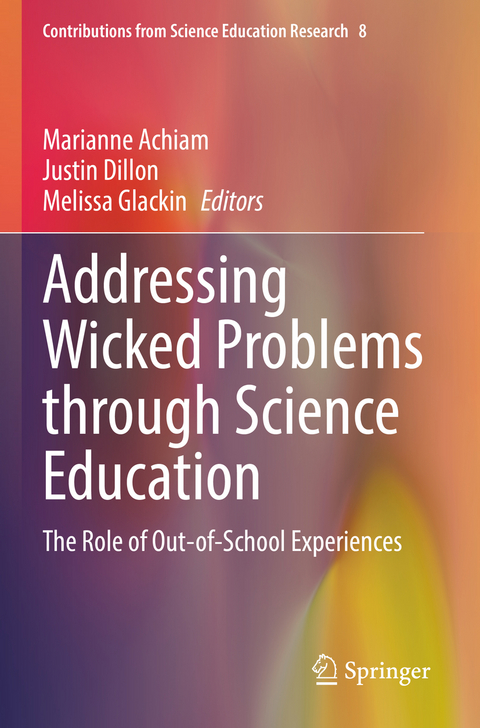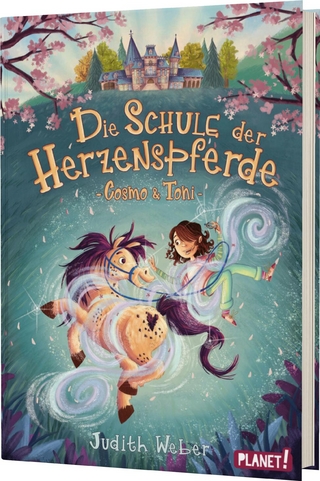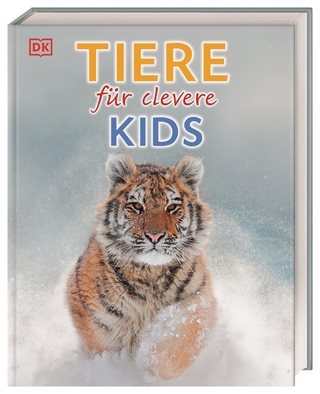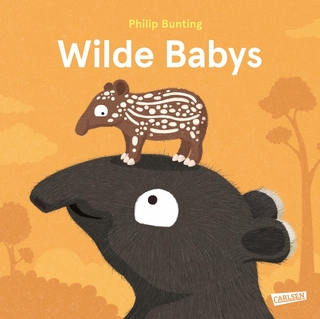
Addressing Wicked Problems through Science Education
Springer International Publishing (Verlag)
978-3-030-74268-3 (ISBN)
The book opens with a principled discussion of the nature of wicked problems and what addressing them involves. This introduction clarifies key terms and ideas to create a coherent backdrop for the rest of the book. Subsequent chapters discuss the challenges of designing educational experiences to address wicked problems, as well as the teaching and learning that takes place. The authors offer perspectives across a range of out-of-school environments such as science centres, natural history museums, botanical gardens, geological sites, and local communities. The book concludes with a chapter that synthesises the findings from the various contributions and points to the messages for educators. Finally, the editors outline an exciting research agenda to build knowledge of education addressing wicked problems. The intended audience of the book includes teachers, educators/facilitators, teacher educators, curriculum developers, and early career researchers as well as established researchers.
Marianne Achiam is associate professor at the Department of Science Education, University of Copenhagen. Her research is about science and sustainability education and communication in science centres, museums, and other out-of-school venues, and has been published in the journals Science & Education, Science Education, International Journal of Science Education, and Museum Management and Curatorship, as well as in books published by Springer and Routledge. She is a member of the Executive Board of the European Science Education Research Association. Justin Dillon is professor of science and environmental education at the University of Exeter. He is editor-in-chief of Studies in Science Education and co-edits the International Journal of Science Education. In 2007, he was elected President of the European Science Education Research Association. He has co-edited 18 books including Becoming a Teacher, Bad Education and the International Handbook of Research on Environmental Education. He has published around 100 papers in peer-reviewed journals and almost the same number of book chapters. Melissa Glackin is senior lecturer in science education at King's College London. Her research has explored why teachers teach what they do, and how they do, within the fields of science education and environmental education particularly related to out-of-classroom teaching. Her research has been published in the journals Environmental Education Research, International Journal of Science Education and International Journal of Research & Method in Education. Between 2015-2019, she served as the co-chair for ESERA's SIG Science education in out-of-school contexts.
Chapter 1 The role of out-of-school science education in addressing wicked problems - an introduction.- Chapter 2 Co-designing a controversy-based educational programme in a science centre.- Chapter 3 Addressing health in out-of-school science experiences.- Chapter 4 Connecting museum visitors to nature through dioramas.- Chapter 5 Family interactions with biodiversity in a natural history museum.- Chapter 6 Real world problem: Connecting socio-scientific contexts and dioramas.- Chapter 7 Who benefits from the natural gas in Israel? Using a public debate to teach all components of education for sustainable development.- Chapter 8 Climate Garden 2085: an art-science experiment promoting different ways of knowing about climate change.- Chapter 9 Using a wicked problem for inquiry-based fieldwork in high-school geology: Addressing climate change and mass extinction events.- Chapter 10 Connecting with people, places, and histories through archaeology: Youths' development of sustain'abilities'.- Chapter 11 School sliding doors: Out-of-school activities and young people's engagement with climate change.- Chapter 12 Wicked problems and out-of-school science education: Implications for practice and research.
| Erscheinungsdatum | 13.08.2022 |
|---|---|
| Reihe/Serie | Contributions from Science Education Research |
| Zusatzinfo | XIV, 237 p. 31 illus. |
| Verlagsort | Cham |
| Sprache | englisch |
| Maße | 155 x 235 mm |
| Themenwelt | Kinder- / Jugendbuch ► Sachbücher ► Tiere / Pflanzen / Natur |
| Schulbuch / Wörterbuch | |
| Sozialwissenschaften ► Pädagogik ► Erwachsenenbildung | |
| Schlagworte | challenges of teaching about wicked problems • challenges of teaching and learning social science • controversy-based educational programme • education on biodiversity challenges • out-of-school environments • out-of-school science education • out-of-school science engagement • science centre educators • science education in immersion exhibitions • science education outside the classroom • social science curriculum devlopers • student engagement with climate change • Wicked Problems |
| ISBN-10 | 3-030-74268-7 / 3030742687 |
| ISBN-13 | 978-3-030-74268-3 / 9783030742683 |
| Zustand | Neuware |
| Haben Sie eine Frage zum Produkt? |
aus dem Bereich


